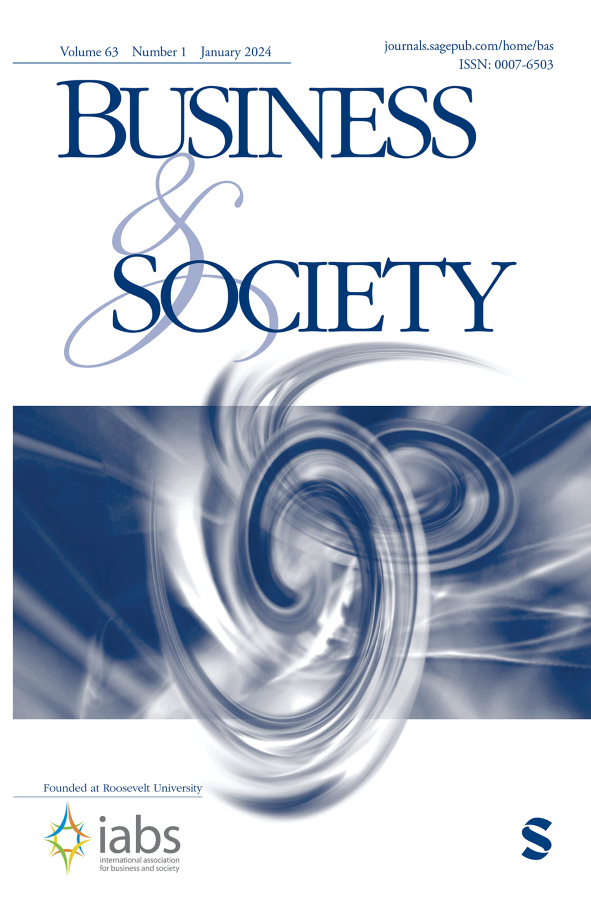导航民粹主义:2015-2016年德国和瑞典企业如何表达难民状况的研究
IF 6
3区 管理学
Q1 BUSINESS
引用次数: 0
摘要
为了研究民粹主义情绪如何越来越多地影响社会中的企业,我们研究了德国和瑞典公司在其2015年和2016年年度报告中如何处理难民状况。我们发现,一旦难民移民受到民粹主义政治情绪的影响,企业就会改变他们的沟通方式,但他们这样做并不认同这些情绪。虽然民粹主义是基于欢迎难民或关闭边境等尖锐的反对意见,但我们的分析表明,企业已经找到了超越这些反对意见的方式来传达难民移民。所研究的公司没有采取政治立场,而是主要将难民局势与它们的业务经营联系起来。我们确定了四种表达模式:难民作为需要国际援助的人,作为经济分析的一个因素,作为福利接受者,或作为潜在的利益相关者。这些发现有助于我们更好地理解企业如何应对有争议的政治问题。本文章由计算机程序翻译,如有差异,请以英文原文为准。
Navigating Populism: A Study of How German and Swedish Corporations Articulate the Refugee Situation in 2015–2016
To study how populist sentiments have increasingly influenced businesses in society, we examine how German and Swedish corporations addressed the refugee situation in their 2015 and 2016 annual reports. We find that corporations changed their communication once refugee migration became subjected to populist political sentiments, but that they did so without subscribing to those sentiments. Although populism is based on such sharp oppositions as welcoming refugees or closing borders, our analysis shows that corporations have found ways to communicate about the refugee migration beyond these oppositions. Rather than taking a political stance, the corporations studied have primarily articulated the refugee situation as it pertains to their business operations. We identify four modes of articulation: the refugee as someone needing international aid, as a factor for economic analysis, as a benefit recipient, or as a potential stakeholder. These findings help nuance our understanding of how corporations navigate contested political issues.
求助全文
通过发布文献求助,成功后即可免费获取论文全文。
去求助
来源期刊

Business & Society
BUSINESS-
CiteScore
14.80
自引率
11.40%
发文量
56
期刊介绍:
Business & Society publishes original research, book reviews, and dissertation abstracts relating to business ethics, business-government relations, corporate governance, corporate social performance, and environmental-management issues. Manuscripts relating to the field of business and society in general are also published. Submissions of theoretical/ conceptual work as well as empirical studies are encouraged. Business & Society is the first peer-reviewed scholarly publication devoted exclusively to the field of business and society, and it is the official journal of the International Association for Business and Society (I.A.B.S.), the only independent professional association dedicated to business and society teaching and research.
 求助内容:
求助内容: 应助结果提醒方式:
应助结果提醒方式:


